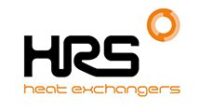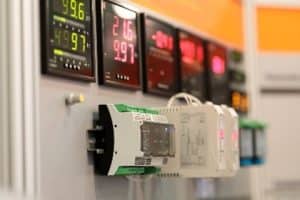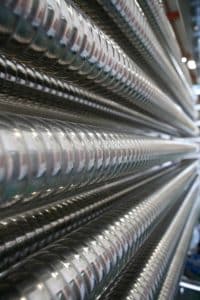
Member press release (opinion piece) – Heat exchangers can enhance energy savings

By Matt Hale, International Sales & Marketing Director, HRS Heat Exchangers
Nobody likes wasting energy, but for businesses there are large financial and environmental drivers to reduce energy use, and since Russia’s invasion of Ukraine, the financial imperative to lower energy costs has come into sharper focus than ever.
As with many things in life, the old adage that if you can’t measure something, you can’t manage it holds true for energy. In order to deliver energy savings, you need to know the baseline from which you are working and then have the tools to measure changes in consumption, whether that’s the use of smart meters and metrics, or the developing strategic plans to reduce energy consumption, including investing in energy reducing and energy efficient plant and equipment.
Businesses have access to a number of tools to measure and improve energy use and efficiency, such as ISO 50001, which was created to help organisations implement Energy Management Systems and deliver continuous improvements in energy efficiency and reducing energy use will deliver savings to both the business’s carbon footprint, and its bottom line.

Heat exchangers are designed to exchange energy between two different materials or streams, usually for the purposes of heating or cooling a product. This makes them ideal tools to help maximise energy efficiency within a process or wider business context as they continuously recover and utilise energy which would often otherwise go to waste.
Because heat exchangers are usually employed for energy intensive operations, the largest operating costs is usually that of the energy, such as the gas, electricity or other fuel used to heat (or cool) the service fluid. This means that energy efficiency is a key factor when choosing a heat exchanger. A difference of 5-10% in thermal efficiency will quickly translate into direct savings in energy or running costs.

One of the key measures of this is to look at the payback period required to cover the capital costs of installing the heat exchanger, or the return on investment (ROI). A doubling or tripling of wholesale energy prices means that the payback period may reduce by half or even more. This payback period is shortest for the most efficient heat exchangers (such as those which use corrugated tube technology like HRS).
For one recently quoted DTI Series heat exchanger using a waste water stream from a cooker, the payback period was less than 90 days when the system was operated for 8 hours a day. Not only that, but the heat exchanger saved more than 500 kg of CO2e a day. Although energy prices remain volatile, current high gas and electricity prices mean that, in terms of the time taken to recoup the capital investment, there has never been a better time to invest in heat exchangers.
From small self-contained systems for pasteurisation to large scale industrial evaporators and condensers, HRS has an energy efficient heat exchanger solution.
– ENDS –
Notes to Editors
- About HRS Heat Exchangers
Located in the UK, HRS Heat Exchangers is part of the EIL Group (Exchanger Industries Limited) which operates at the forefront of thermal technology. HRS offers innovative heat transfer solutions worldwide across a diverse range of industries. With more than 40 years’ experience in the environmental, energy, food, pharma and industrial sectors, specialising in the design and manufacture of an extensive range of turnkey systems and components, incorporating our corrugated tubular and scraped surface heat exchanger technology, HRS products are compliant with global design and industry standards. HRS has a network of offices throughout the world: Australia, Canada, New Zealand, UK, Spain, USA, Malaysia and India; with manufacturing plants in the UK, India, Spain and Canada. www.hrs-heatexchangers.com
- For UK media enquiries about HRS Heat Exchangers please contact:
Yenni Maelianawati, Senior Marketing Manager, 3 Abloy House, Hatters Lane, Watford, Hertfordshire, WD18 8AJ
Tel: 01923 232 335
Direct Email: yenni@uk.hrs-he.com
Email for publications: info@uk.hrs-he.com
- Release issued by GloHouse Media: Bev Small, bev.small@glohouse.co.uk, Tel: 01223 872239 / 07901 841491

